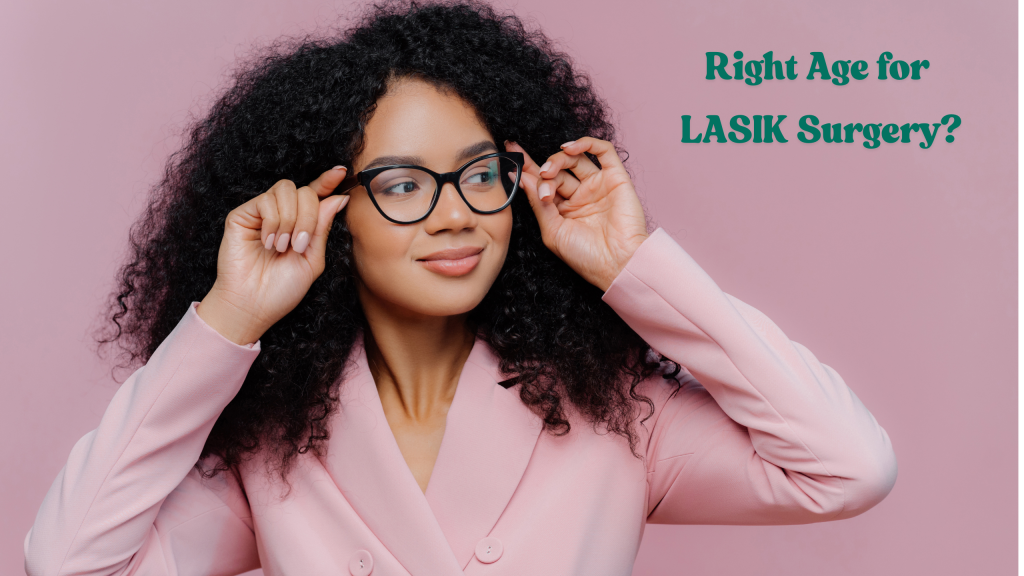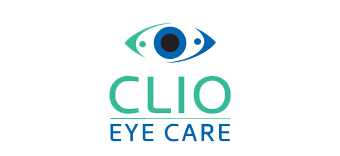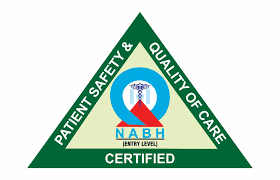
LASIK surgery has become a popular way to fix vision problems. It allows people to see clearly without using glasses or contact lenses. Many want to know: what is the best age for LASIK surgery? The answer is not simple. Several factors can affect whether LASIK is right for someone.
Understanding LASIK Eye Surgery
LASIK, which stands for Laser-Assisted in situ Keratomileusis, is a careful type of eye surgery. It is part of what we call refractive eye surgery. This procedure uses laser technology to reshape the cornea. The cornea is the clear front part of the eye. By changing its shape, LASIK helps the eye focus light better onto the retina, which is at the back of the eye. This way, it can fix problems like nearsightedness (myopia), farsightedness (hyperopia), and astigmatism. Many people who have LASIK can see more clearly without needing glasses or contacts.
One main benefit of LASIK is that it gives people more freedom in their vision. Yet, it is important to learn about the procedure, who it might be right for, and any possible risks before deciding on LASIK surgery.
Age Considerations for LASIK Surgery

LASIK surgery can change lives for many people. However, age is an important factor in deciding if this procedure is right for you and what results you can expect.
Minimum Age Requirement for Undergoing LASIK
The accepted minimum age for LASIK surgery is 18 years old. This rule is based on the fact that a person’s eyes keep changing during their teenage years. If someone gets LASIK surgery before they turn 18, they have a higher chance of getting some number back. This is mainly because their eye prescription, known as refractive instability, is still changing.
Only when the eyes have fully matured, usually around 18 years, can they have a stable prescription. This stability is important. It helps ensure that the reshaping of the cornea during LASIK leads to lasting vision correction. This makes the procedure a good choice for improving sight.
Consult our LASIK Experts, at CLIO EYE CARE, to know if LASIK is the right time for you.
To Book an Appointment , Click here : https://www.clioeyecare.com/contact/
What is the ideal age for Lasik Eye Surgery?
There is no ideal age set for LASIK, however minimum age should be 18 yrs as the power becomes stable generally by 18 yrs of age. LASIK is a great option to get spectacle freedom in patients who have a stable prescription ,and fulfill all the eligibility criteria. The average age of patients getting LASIK done is generally around 24-26 years, as generally they have completed their education, and are financially independent to a certain extent. But there is no upper age limit for LASIK. So people in age group of 18 to 55 can consider specs removal with laser vision correction. Generally above 55- 60 if there are any cataract changes, then RLE is considered as a better option in them.
Risks of LASIK at Different Age Groups
LASIK surgery is a safe and effective way for people of different age groups to correct their vision. However, it does come with some risks, which, while uncommon, depend on things like age and existing eye problems. It’s important to understand these risks when deciding if this procedure is right for you.
For younger individuals, there may be worries about the long-term stability of their vision. This is especially true if their glasses or contact lens prescription changes after surgery. Also, those with severe refractive errors—no matter their age—might face a greater chance of needing extra surgeries later on.
It is also important to keep in mind that every surgery, including LASIK, has some risks involved. These can include infections, complications with the flap created during surgery, or even vision loss. Such risks can happen to anyone and should be clearly talked about with a qualified eye surgeon before the procedure.
Factors Influencing LASIK Eligibility
Understanding the complete factors that decide if you are eligible for LASIK is very important for getting good results from the surgery. Age is important, but other factors also help in determining if someone is a suitable candidate.
In addition to age, a detailed eye exam checks the thickness and shape of the cornea. It also measures the level of refractive error, looks for any eye diseases, and reviews overall eye health. Considering these aspects ensures that you have clear vision right after the LASIK procedure and for a long time afterward.
Eye Health and Stability Requirements
Before considering a person for LASIK surgery, careful checks of their eye health are very important. This includes looking at many things, not just age. A complete examination helps ensure good results from surgery and protects long-term vision.
One key requirement is having a stable prescription. This means a person’s need for vision correction should stay the same for at least 12 months. Such stability lowers the chance of getting power back after .
The eye doctor also looks at other eligibility criteria like how thick the cornea is. The procedure needs enough tissue to create a safe flap and do the laser work. Also, certain eye issues, like severe dry eye, unmanaged glaucoma, or an active eye infection, autoimmune disease may prevent someone from getting LASIK. This shows how important overall eye health is for being eligible for surgery.
The Role of Hormonal Changes in LASIK Timing
Hormonal changes, which happen during different life stages, can impact eye health and vision. Because of this, it’s important to think about when to have LASIK surgery. Hormones help keep the eye’s surface stable. When they’re not balanced, it can make healing after surgery harder and lead to worse results.
For example, pregnancy and breastfeeding can cause temporary changes in vision and can raise the chance of dry eye disease. Women should wait to have LASIK until their hormone levels go back to normal after having a baby and breastfeeding. Similarly, those who are on hormone replacement therapy should talk to their eye doctor about how it might affect their eye health.
Knowing how hormonal changes affect the eyes helps make a more personal plan for LASIK surgery. It’s important to share any hormonal changes with your surgeon. They can guide you on when is the best time for the surgery, helping to lower risks and get the best results.
LASIK Alternatives for Different Age Groups
LASIK is a popular way to fix vision, but it’s not the best option for everyone. Our eyes change as we age, so it’s important to look at other ways to correct vision.
Thanks to new developments in eye care, there are many other options available. Each option is designed for different age groups and specific vision problems. These alternatives help with the unique visual issues that can come with getting older, ensuring that you have clear sight. These include Phakic IOLs like Staar EVO Visian ICL and Refractive Lens Exchange.
Refractive Lens Exchange for Older Adults
Refractive lens exchange (RLE) is a good choice for older adults who have vision changes due to age, like presbyopia. It works similarly to cataract surgery. This procedure targets the eye’s natural lens to help correct vision.
In RLE, the doctor takes out the natural lens and puts in a special artificial intraocular lens (IOL). This IOL permanently replaces the natural lens, fixing refractive errors and often reducing or removing the need for reading glasses. This is especially helpful for people who cannot have LASIK because of age-related lens issues or corneal problems.
RLE can successfully treat refractive errors and early cataracts at the same time, making it an attractive option. Also, the new IOL technology allows doctors to offer tailored vision correction based on each person’s visual needs, particularly for older adults.
Contact us to know more :https://www.clioeyecare.com/contact/
Epicontoura Streamlight PRK : Options for Younger Candidates
For younger individuals who can’t have LASIK because of thin corneas or jobs that might harm their eyes, Advanced surface ablation techniques like Epicontoura Streamlight PRK (Photorefractive Keratectomy) are a good choice. This laser eye surgery option can correct vision effectively and have unique benefits.
It involves carefully removing the thin outer layer of the cornea (called the epithelium) and reshaping the tissue underneath with a laser. This method reduces the risk of flap problems and is good for people with thin corneas or those who play contact sports or have physically strenuous jobs.
Key Factors for Eligibility
Finding the best way to correct your vision requires careful thought about different personal factors. It’s important to talk openly with a skilled Cornea and Refractive surgeon. Sharing your full medical history helps the eye care team create a plan just for you, aiming for the best results.
When you have your consultation, be ready to talk about your vision goals and lifestyle. Also, mention any existing medical conditions. This thorough evaluation helps the eye surgeon suggest the right procedure for you, like LASIK, RLE, PRK, LASEK, or another option for vision correction.
Things like corneal thickness, how much refractive error you have, your overall eye health, and your lifestyle will affect your eligibility for surgery. Special attention is given to people with certain conditions to ensure a treatment plan that fits their visual needs and overall health.
Conclusion
In conclusion, choosing the right age for LASIK surgery depends on different factors. This includes your eye health, stability, and risks that come with age. There is a minimum age to consider, but the best age varies for each person. It is important to understand these factors and options like PRK, Phakic IOL (ICL/IPCL) and refractive lens exchange when you think about vision correction. If you are thinking about LASIK, talk to an eye care professional. They can help you check if LASIK is a good fit for your needs and health. Your vision is important, so make sure to choose wisely when considering LASIK surgery.
Frequently Asked Questions
At what age is LASIK most effective?
The best age for LASIK surgery, when it works best for vision correction, is above 18 years.While there is no upper age limit, generally if patients are above 55-60 years RLE could be a good option. This is true as long as the person meets all other criteria.
Can teenagers undergo LASIK surgery?
LASIK surgery is usually not suitable for teenagers. The minimum age for getting LASIK is 18. However, most eye surgeons recommend that patients be at least 21 years old. This is because they want a more stable prescription for better results.
To Book an Appointment , Click here : https://www.clioeyecare.com/contact/

